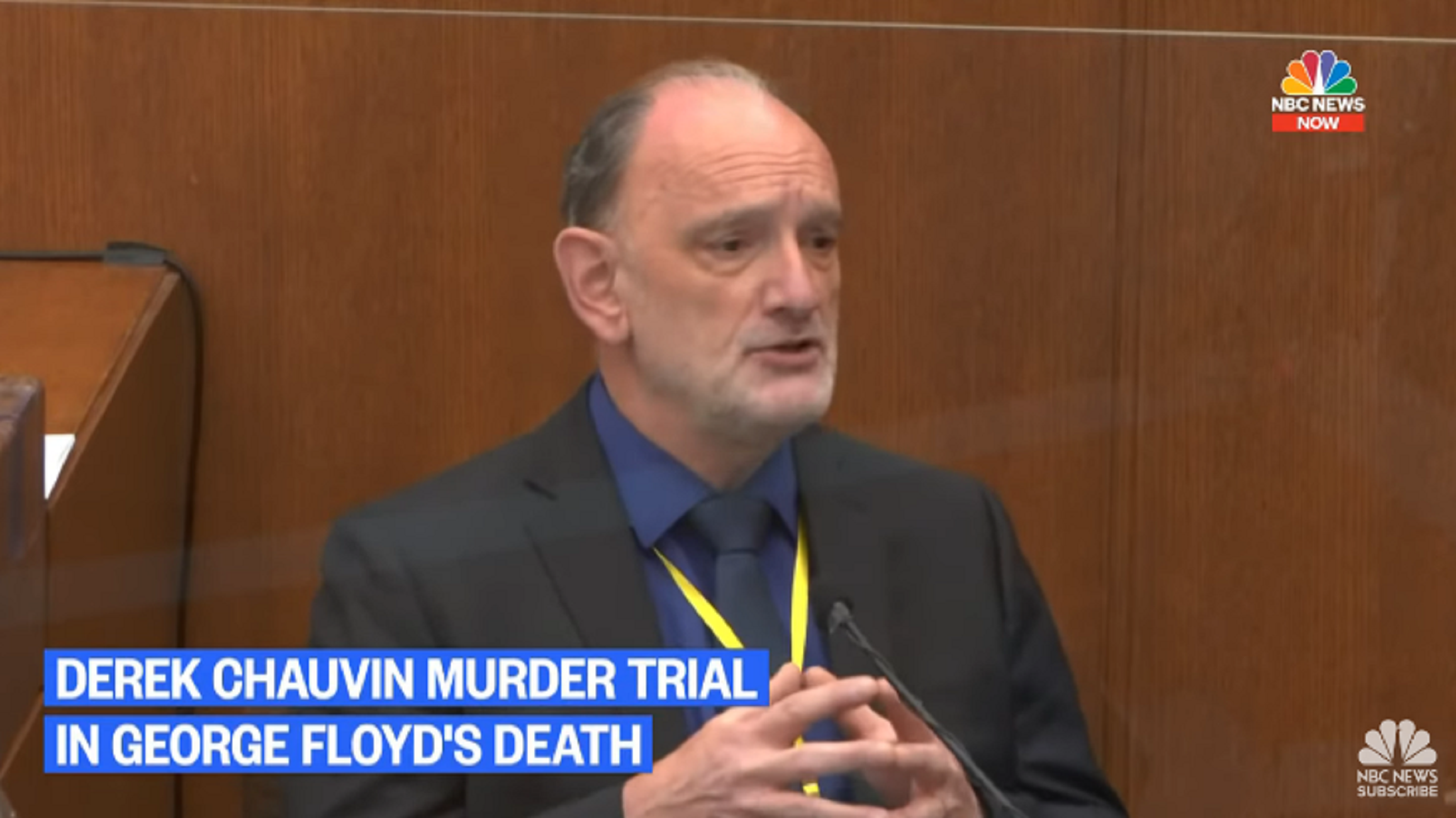
A South African-born forensic pathology consultant took the stand in the murder trial of Minneapolis police officer Derek Chauvin and contradicted several medical experts.
Other medical experts said Floyd died of hypoxia, or lack of oxygen, while being held face down and handcuffed on the ground with Chauvin’s knee on his neck for more than nine minutes.
Chauvin faces up to 40 years in prison if convicted of the most serious charge of second-degree murder.
A 19-year veteran of the Minneapolis Police Department, Chauvin was fired from the force after Floyd’s death.
Three other former police officers involved in Floyd’s arrest are to be tried separately later this year.
In his contradictory testimony, Dr David Richard Fowler said George Floyd died from cardiac arrest brought on by heart disease, illegal drug use and other factors.
“I would fall back to undetermined in this particular case,” he said. “One of the uses of this particular classification is when you’ve got so many conflicting potential mechanisms, when the manner of death is not clear.”
ALSO READ: Defence begins for officer charged with murdering George Floyd
Fowler said Floyd had an enlarged heart and “significant narrowing of all of his coronary arteries”.
“Mr Floyd died of a cardiac arrhythmia due to hypertensive, atherosclerotic vascular disease during the restraint,” he said.
He said fentanyl and methamphetamine ingested by Floyd were contributing causes along with “the potential of a carbon monoxide role”.
Fowler said Floyd was held down on the ground by Chauvin and other officers next to the exhaust pipe of a running police car.
He said he did not believe Floyd died of carbon monoxide poisoning but it was a potential factor in his death.
He acknowledged under cross-examination, however, that no tests were ever done on the CO2 levels in Floyd’s body.
Who is Dr David Richard Fowler?
Apart from the brief educational background that Fowler provided at the trial, his heavy South African accent gave him away.
A few things about Fowler:
- He worked full time in forensic pathology since 1986 and has been in that discipline for more than 30 years
- He worked at the office of the chief medical examiner for the State of Maryland
- He occasionally worked as a consultant and continues to do so after retirement
- Fowler graduated from the University of Cape Town in 1983. “I did a year of internship in general medicine and general surgery – a requirement in South Africa before you get a licence.”
- He did a year of training in paediatric pathology at the Red Cross Children’s Hospital in Cape Town
- He did a full time five-year training programme at the University of Cape Town in forensic pathology
- He graduated with a Master of Medicine in forensic pathology
ALSO READ: ‘It wasn’t right’ – witness to George Floyd death tells court
“When I came to the US I felt it was very important to get an American qualification if I was going to work in this country full time. The American board of pathology demands all pathology training is done in the US or Canada.
“I went back to the University of Maryland for two years to complete additional anatomic pathology training to qualify me for that portion of the examination process and two years of forensic pathology training at the office of the chief medical examiner,” he said.
“I then took my board examination through the American Board of Pathology in anatomic and forensic pathology passed those exams.”
Fowler started as an assistant medical examiner in the chief medical examiner’s office in 1995. He went on to be a deputy chief for autopsy services for several years in the office of the medical examiner and ended up as chief medical examiner in 2003.
“I served in that position for about 17 years.”
Additional reporting by AFP

